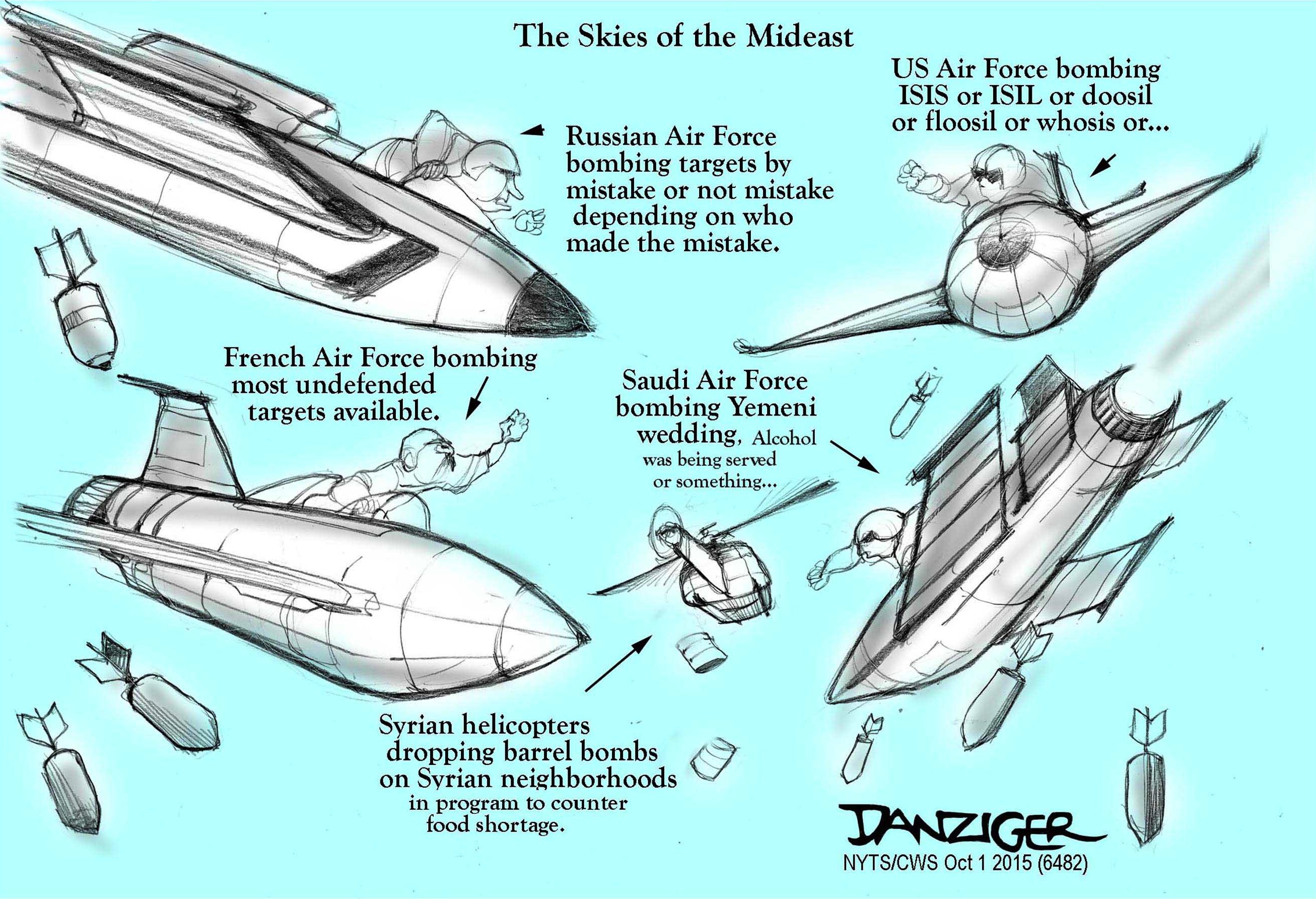U.S. Defense Secretary Ash Carter said last week that four Russian cruise missiles fell in Iran rather than in Syria. To Carter, the errant munitions reflect Russia's "unprofessional behavior." To the Russians, they may be part of the reason they are in Syria in the first place.
Strategically, Russia's involvement in the Syrian war looks like a terrible idea, or at least a big gamble. "Doubling down" on President Bashar Assad, as Carter put it, could give the Syrian strongman some breathing space, but not necessarily a lease on life. At the same time, Russia is alienating Turkey, where President Vladimir Putin until recently had a comfortable partner in President Recep Erdogan. It also threatens to make enemies in the Sunni Arab world just when relations with Saudi Arabia seemed to be improving.
What happens if the land offensive started by Assad's forces Wednesday with help from Iranian troops and the Iran-backed Hezbollah militia fails to recapture lost territory? Does Russia have a specific goal or at least a time frame? What about an exit strategy?


















With your current subscription plan you can comment on stories. However, before writing your first comment, please create a display name in the Profile section of your subscriber account page.